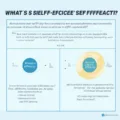A self-fulfilling prophecy is a belief or expectation that causes the expected result to actually occur. In psychology, this phenomenon happens when someone’s false belief or expectation leads them to act in ways that make the original false belief become true.
Exploring Self-Fulfilling Prophecies with an Open Mind
Self-fulfilling prophecies can negatively or positively impact people’s lives. For example, a teacher may underestimate a student’s abilities, treating them in ways that inhibit their success, thus confirming the original false expectation. However, teachers can also encourage students in ways that empower them to excel.
Rather than judging people impacted by self-fulfilling prophecies, it is important we meet them with compassion. Often these dynamics subtly emerge from broader societal inequities beyond any one person’s control.
Disrupting Harmful Self-Fulfilling Cycles
The good news is self-fulfilling prophecies can be disrupted. As we spread more positive views of one another and structurally support people to thrive, we can shift culture. Change starts with each of us reflecting on our own expectations of others and choosing to see the bright light within every person.
Frequently Asked Questions
What are some examples of self-fulfilling prophecies?
Common examples are teachers underestimating students’ abilities which leads to poorer performance, bosses not believing in employees which inhibits productivity, etc. The expectations shape realities.
Can self-fulfilling prophecies be positive?
Yes, self-fulfilling prophecies can involve positive views leading to positive outcomes. For example, seeing the potential in someone and treating them accordingly.
How can we avoid negative self-fulfilling prophecies?
Being aware they exist is the first step. Then check our implicit biases and assumptions about people. Choose to see the good in everyone and treat them equitably.
Do self-fulfilling prophecies impact whole societies?
Yes, self-fulfilling prophecies can perpetuate systems of inequality when embedded broadly in cultures and institutions. It takes intentional structural reforms to disrupt systemic self-fulfilling cycles.
Can people break out of self-fulfilling prophecies set upon them?
It can be extremely difficult when expectations embedded so broadly, but providing social support, education, economic resources and spreading alternate positive views of marginalized groups can help dismantle self-fulfilling prophecies that trap populations.









